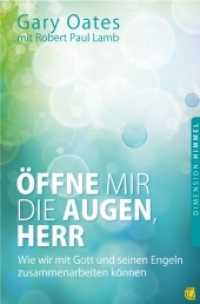Description
Sustainability in Latin America: A Bioeconomic Approach explores the bioeconomy through theories, methodologies, and case studies rooted in specific contexts across Latin America. Rather than attempting to compile or generalize a singular vision of a Latin American bioeconomy, it highlights diverse experiences that reflect the region s complexity. By its very nature, the bioeconomy is both multidisciplinary and interdisciplinary. Accordingly, the book features contributions from various fields, offering a rich, multifaceted understanding of bioeconomic practices. For instance, Chapter 1 revisits Georgescu-Roegen s theory through a fresh lens, enriched by new multidisciplinary insights into territorial and sociocultural dynamics. This approach opens up possibilities for rethinking consumption patterns, fostering sustainable technologies, and strengthening community development.
The bioeconomic bridge between Georgescu Roegen and the Latino bioeconomy.- Life cycle analysis as a tool for the evaluation of the environmental impact of a coffee residual mixture biorefinery.- Valorization of Agroindustrial Residues by the Recovery of Functional Compounds by Green Technologies Green Tomato Waste Pumpkin Residues and Apple Bagasse as Examples from Mexico.- Treatment of Slaughterhouse Wastewater for Reuse and Waste Utilization as a Circular Economy Alternative.- Biocultural relevance and bioeconomic perspectives of ahuilote Vitex mollis Kunth.- Analysis of the Bioeconomy cost of Sitotroga Cereallela: Trichogramma pretiosum and Chrysopa Externa.- Composting training program a collaborative response that contributes to the circular bioeconomy of organic solid waste.- Sustainable Innovation Nanocellulose Extraction with Natural Deep Eutectic Solvents in Lignocellulosic Residues in Iberoamerican.- Analysis of Agroecological Bioeconomy.- Exergetic Scope of Bioeconomics The Case of Mexican Oil vs Solar Energy.
Sergio Gabriel Ceballos Pérez is a Researcher for Mexico from the Ministry of Science, Humanities, Technology and Innovation, He currently works as a Professor at the Polytechnic University of Pachuca. He studied agricultural planning and he completed his master and doctorate in economics at the National Autonomous University of Mexico, and his main research is on the topic of waste and sustainability.
Carlos Alberto Zúniga González, PhD in Social Sciences, is a renowned agricultural economist and researcher at the National Autonomous University of Nicaragua-León. His academic work focuses on bioeconomy, productivity analysis, and sustainable development. He has published on efficiency measurement, value chains, and rural innovation systems, linking socioeconomic dynamics with ecological transitions.
Alejandro Téllez Jurado is a Food Engineer and he completed his master s in biotechnology at the Autonomous Metropolitan University, Mexico. He has a PhD from the University of Alcalá, Spain. He currently works as a Professor-Researcher at the Polytechnic University of Pachuca in the area of Biotechnology at both the undergraduate and graduate levels, with his main lines of research being enzymatic technology and the degradation of organic matter.
Dr. Yuridia Mercado Flores is a renowned Mexican scientist known for her research in microbiology and its biotechnological applications, particularly in agriculture. She has made significant contributions to the field and has played a vital role in educating and inspiring new generations through her passion and dedication to research.






